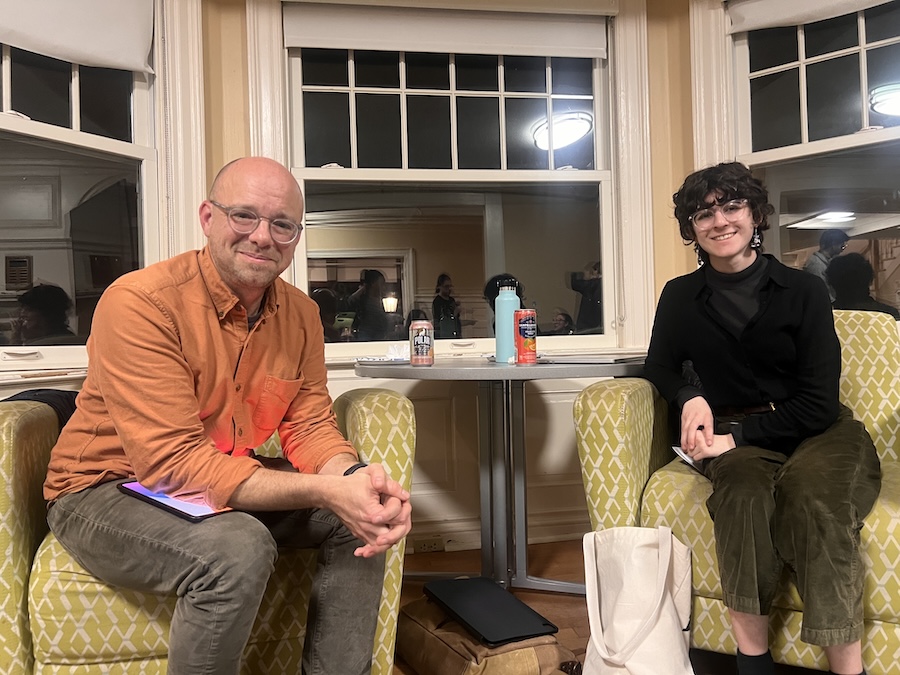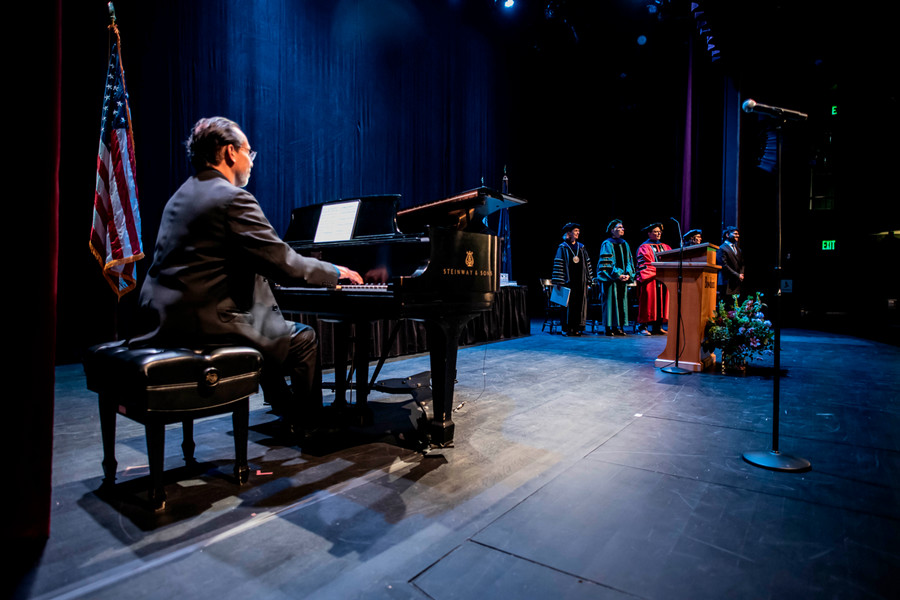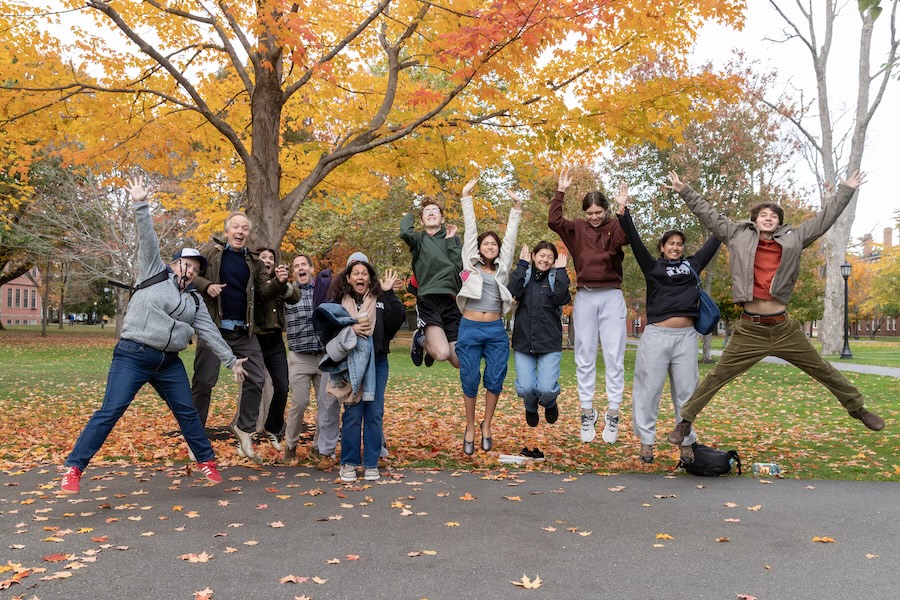Alan Lightman H’05 Calls for Rebuilding Public Trust in Science
By Rebecca GoldfineIn a recent talk at Bowdoin, theoretical physicist, author, and humanitarian Alan Lightman H’05 addressed the growing global distrust of scientists and their institutions and offered advice on how they can help to reverse this trend.
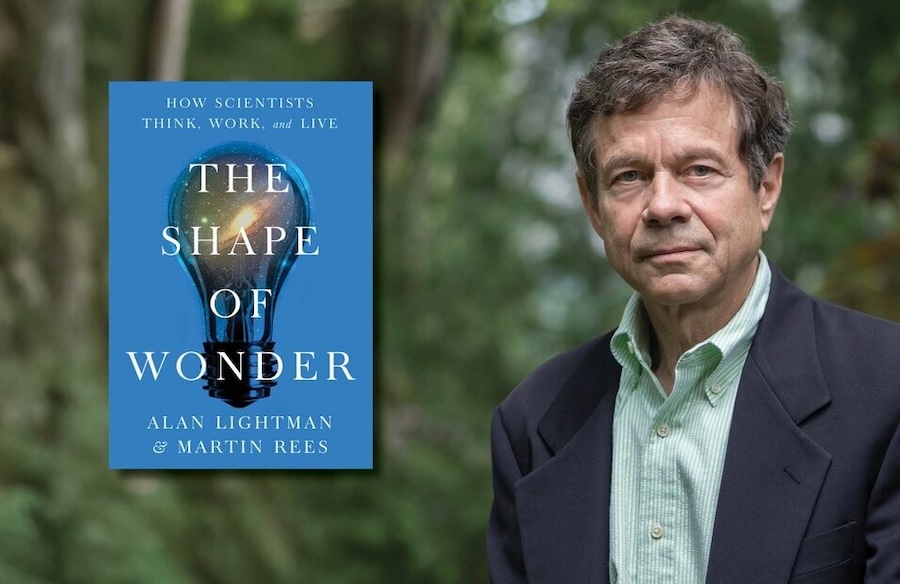
“Such mistrust is part of the global populism movement, in which scientists are seen as part of the elite establishment, out of touch with ordinary people, and often thought to be motivated by political or economic interests,” Lightman said on Oct. 20 in Kresge Auditorium.
Drawing on his own career and on research for his latest book, The Shape of Wonder: How Scientists Think, Work, and Live, coauthored with Martin Rees, Lightman is countering that view. Scientists, he has found, are diverse and come from many backgrounds, but they tend to share a curiosity about the world, a passion for their work, and a desire to benefit society directly or indirectly.
Part of the public's unease with science, he suggested, stems from a widespread lack of understanding of evidence-based critical thinking. “When scientists change their recommendations,” he said, “it is not because we’re wishy-washy—it’s because new information has become available.” Public sensitivity to such changes, he added, is especially pronounced in medical and biological fields.
Lightman warned that diminished trust in science threatens our ability to confront major global challenges. “Climate change, the manipulation of DNA to cure disease or create altered human beings, AI and computers that can replace jobs or make decisions on the battlefield—these are all careening toward us at exponentially increasing speeds,” he said. “Science is changing the world. We must understand it, and we must trust its practitioners.”
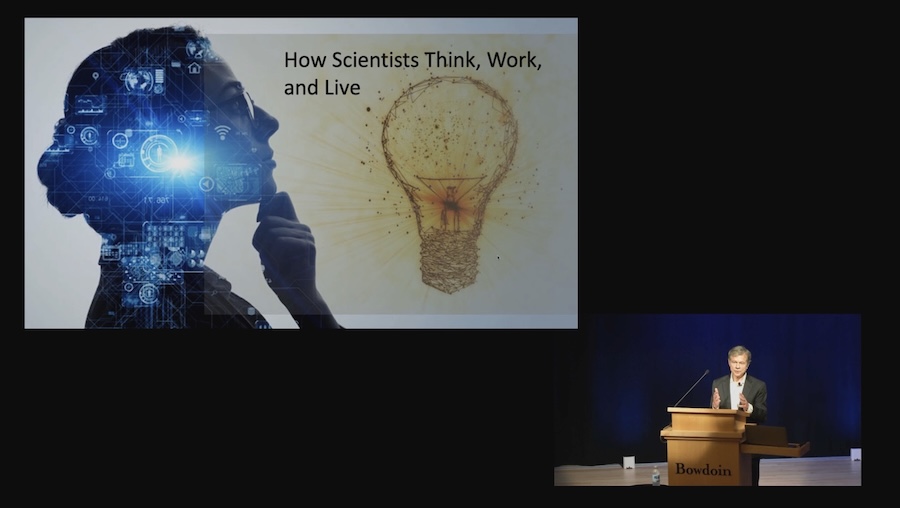
He offered a series of recommendations for scientists, science writers, and the public. “To be effective citizens,” Lightman said, “everyone needs to have a basic grasp of scientific concepts and discoveries.”
He urged scientists to avoid experiments that carry even a small risk of catastrophic outcomes and to resist or call attention to dangerous applications of their work. On long-term issues like AI and climate change—“which operate on multi-decade time scales, far outside the election cycle of politicians”—he said scientists must not only advise policymakers but also engage the wider public in open, cross-partisan discussion.
“Scientists should present policy options based on a consensus of expert opinion,” he said, “but when we engage, we scientists should speak as citizens.”
Lightman also cautioned scientists and journalists to communicate responsibly. “Care should be taken to not exaggerate or sensationalize scientific findings,” he said, which can distort the public’s understanding. “There are too many popular articles that claim a crisis in a scientific field. It’s far easier to publish an exclamatory article than one that reports the more ordinary progress of science.” Such sensationalism, he believes, fuels mistrust of both scientists and institutions.
Lightman is a professor of the practice of the humanities at MIT, the first person at the university to receive a dual faculty appoinment in the sciences and humanities. He is the author of numerous books, including the novels Einstein’s Dreams, an international bestseller, and Mr g, as well as several works of nonfiction.
His talk at Bowdoin was sponsored by the Kenneth V. Santagata Memorial Lecture Fund, the Donald Zuckert Fund, and the Department of Mathematics, in association with the Hastings Initiative for Artificial Intelligence and Humanity.

